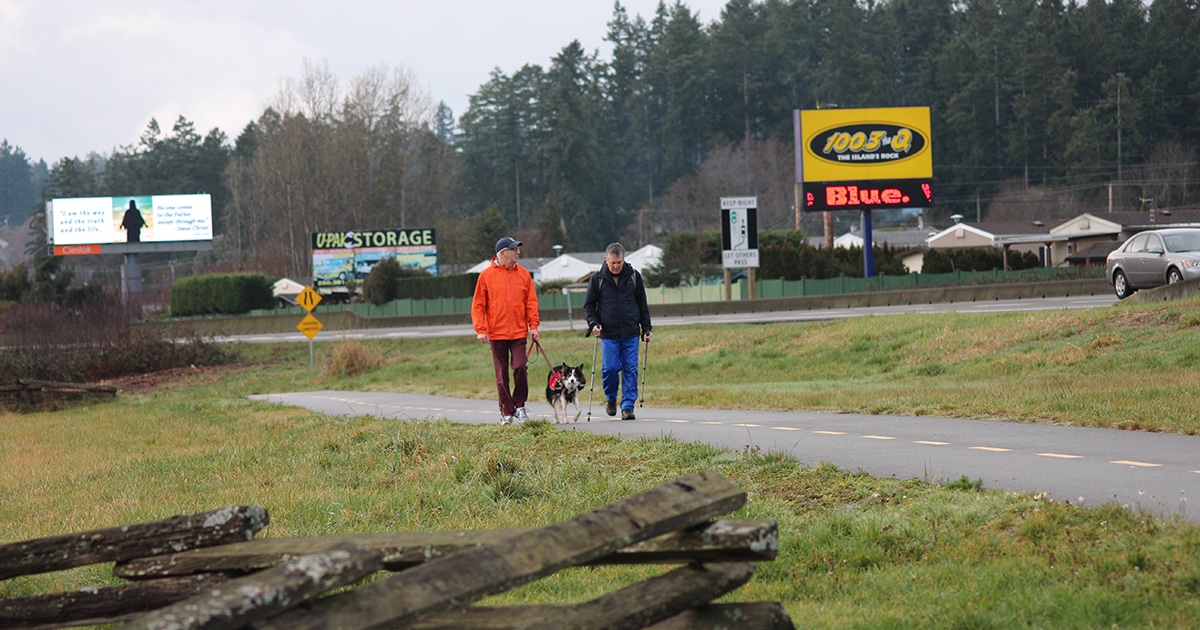When he became bishop of the Anglican diocese of British Columbia almost two years ago, one of the first charges Bishop Logan McMenamie gave to his diocese was to determine how it could work to de-colonize the church by looking at its colonial history and its relationships with Indigenous peoples.
At the 2014 diocesan synod, Bishop McMenamie spoke about the idea of “re-entering” the land, which had occurred to him but had yet to take concrete shape. Consulting with Indigenous elders in the following months and years, the bishop began to learn about the concept of the vision quest, inspiring him to make his own journey “to take some time with the Creator.”
A major part of the vision quest is removing oneself from worldly goods, which Bishop McMenamie felt to be particularly appropriate for Lent. Perhaps even more significant was its focus on repentance—a need felt deeply across the Anglican Church of Canada as it strives for reconciliation with Indigenous peoples, following a colonial past symbolized by the Doctrine of Discovery and the church’s role in the residential school system.
“We came as if we were bringing God here,” Bishop McMenamie said. “But the Creator was already here—in the land, in the sea, in the sky, in the teachings, in the language, in the traditions of the First People.”
In an act of repentance for himself and all Anglicans in his diocese, the bishop will be making a Sacred Journey starting on March 6, walking across Vancouver Island from Alert Bay to Victoria to symbolically leave the land and re-enter it in a new spirit rooted in right relationships and the discovery of God in Indigenous teachings. He has invited others in the diocese to get involved by joining him on the walk, learning a First Nations language, or reading a planned Lenten Bible study.
Along with guidance from some local First Nations, Bishop McMenamie found biblical inspiration for his 480-km journey, which is expected to last until March 27. He recalled the crossing of the Israelites over the River Jordan in the Old Testament, and the subsequent baptism of Jesus as the one chosen to lead the re-entry of a morally purified Israel into the Holy Land.
“Israel entered the land as conquerors,” he said. “And I really believe that what John the Baptist was doing was, if you want, a vision quest … taking the people out of the land so they could enter into a new relationship with the land and the peoples who were there.”
The spirit of reconciliation
Key to the proper unfolding of the Sacred Journey will be following the proper protocols as the bishop seeks to enter First Nations land. In preparation, he has been actively consulting with elders, one of whom is his friend and mentor Alex Nelson, a member of the Musgamagw-Dzawada’enuxw First Nation of Kingcome Village.
As a child, Nelson attended the Anglican-run St. Michael’s Indian Residential School beginning at age seven in Alert Bay. He established a relationship with Christ Church Cathedral in 2010, when the cathedral and its then-rector McMenamie helped raise funds for Kingcome after it experienced severe flooding. Later Bishop McMenamie invited Nelson and his family to his consecration ceremony as bishop.
“When he talked about the re-entering and in the spirit of reconciliation, I caught on right away … It’s one of those undefined moments where you just know it’s good and right,” Nelson said.
The elder quickly offered his resources to help with protocol, drawing on his relationships with major leaders of First Nations on Vancouver Island, including chiefs and tribal councils, to help the bishop seek permission to enter their territory. Nelson also plans to walk with Bishop McMenamie during parts of the journey.
Meanwhile, the bishop turned to a member of the congregation at Christ Church Cathedral, retired volunteer Wayne Stewart, to serve as trip project manager and help tackle logistical challenges.
With only two months of preparation time, Stewart has been busy on a number of fronts, organizing transport, accommodations and food and opening communications with different First Nations.
Simplicity and humility
Throughout the journey—during which Bishop McMenamie will walk a maximum of 30 km per day—volunteers in shifts will drive a rented motor home to accompany the bishop, who will sleep in motels and billets when possible and in the motor home on secluded forestry roads when no other options are available.
Along the way, the bishop will connect with First Nations communities and participate in Anglican church services. In Victoria, he plans to appear at a First Nations soccer tournament and the Tent City that has sprung up in front of Christ Church Cathedral. But not seeking attention, his trip is guided by two central principles: simplicity and humility.
“There will be no triumphal entries into any of the communities,” Stewart said. “That’s not what this is about.”
In the lead-up to his journey, Bishop McMenamie has been avidly training, walking greater distances each day.
He stressed that the Sacred Journey is not an end, but merely another step in a much longer journey towards reconciliation, suggesting that the next step might be responding to the Calls to Action made by the Truth and Reconciliation Commission.
The bishop invited Anglicans across Canada to pray for those on the journey and consider how they might promote reconciliation in their own communities.
“The spiritual and cultural challenges of this journey will end,” he said, “at the day [we can] be a different people and a different church.”
Interested in keeping up-to-date on news, opinion, events and resources from the Anglican Church of Canada? Sign up for our email alerts .

